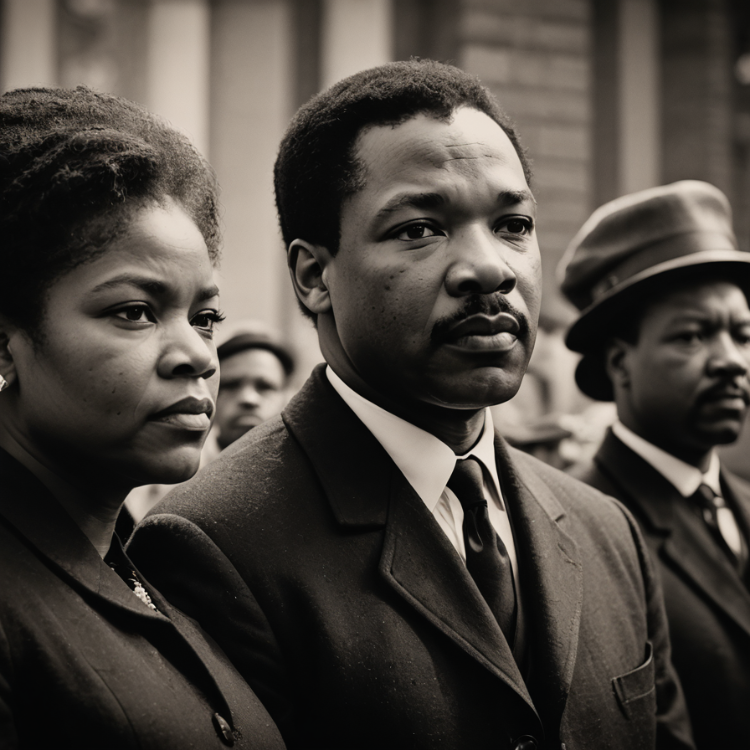This African American Studies online course invites students to explore one of the most vital and transformative narratives in U.S. history. This course traces the arc of the African American experience—from pre-colonial Africa through the transatlantic slave trade, emancipation, Reconstruction, the Civil Rights era, and into the cultural and political movements shaping our present. Along the way, students engage deeply with the resilience, creativity, and contributions of African Americans, while also confronting the legacies of systemic racism and inequality that continue to shape U.S. society today.
Like all Cicero Learning courses, African American Studies is taught one-to-one, giving students a rare opportunity to explore history not only through the lens of major movements and figures, but also through their own passions and questions. A student fascinated by politics might spend more time with landmark Supreme Court cases; a student interested in art and music might examine how spirituals, jazz, or hip-hop have been engines of cultural change. The course is personalized to you, shaped iteratively by your teacher in partnership with your family.
How Our Online African American Studies Course Works
You will meet once or twice each week with your teacher (depending on whether this is a full credit or half credit course), to build an ongoing dialogue about African American history and culture. Live sessions might include close readings of primary documents, discussions of historical debates, or collaborative analysis of maps and demographic data. Between sessions, you will pursue independent work, including readings, research, writing, and engaging with multimedia resources such as oral histories, documentaries, and digital archives.
Because every Cicero course is custom-built and the pacing and focus is adapted to the learner, the curriculum will emerge throughout the course. A younger student, for example, might receive more guidance in contextualizing events, while an older or college-bound student might dive into historiography, comparative analysis, and document-based questions. The teacher’s role is to balance rigor with curiosity—to meet you where you are, and to stretch you toward higher levels of critical thought.
Why Choose This Course?
African American Studies is not strictly a history course, and the skills you will acquire will extend across the social sciences and humanities. You will come away from this course with skills that extend far beyond the classroom:
- Critical Reading and Analysis: Engaging with speeches, letters, and legal documents sharpens interpretive abilities.
- Historical Thinking: You will practice identifying continuity and change, cause and effect, and the interplay of ideas, people, and institutions.
- Data and Spatial Analysis: Migration patterns, census data, and maps of segregation help you see history in motion.
- Cultural Literacy: From literature to music to political thought, you will encounter the breadth of African American contributions to U.S. society.
- Empathy and Imagination: Reflecting on struggles for justice equips you to think more clearly about equity and the future.
This course is ideal for homeschoolers, worldschoolers, and students seeking a humanities curriculum on par with what is offered at selective independent schools. Because the class is taught one-to-one, it can be tailored for college-bound students preparing for rigorous admissions processes, or for curious learners seeking an expansive, inquiry-driven education.
Core Concepts in Our African American Studies Curriculum
Although the syllabus will be adapted to each learner, the following themes and units might form the backbone of the course:
African Origins and the Atlantic Slave Trade
- Pre-colonial African societies and cultures
- The Middle Passage and the human cost of enslavement
- Economic, political, and cultural consequences of the slave trade
Slavery in the Americas
- Daily life under slavery and systems of resistance
- The role of slavery in shaping American politics and economics
- Abolitionist movements and key figures
Civil War and Reconstruction
- Emancipation Proclamation and the 13th–15th Amendments
- Reconstruction governments, achievements, and backlash
- The rise of Jim Crow laws and systemic disenfranchisement
Culture and Resistance
- The Harlem Renaissance and the flowering of Black art, literature, and music
- Religious, intellectual, and cultural traditions as tools of resilience
- The impact of African American culture on the broader American identity
Civil Rights and Black Power
- Landmark events: Brown v. Board, Montgomery Bus Boycott, March on Washington
- Leaders: Martin Luther King Jr., Malcolm X, Fannie Lou Hamer, Ella Baker
- Black Power, Black Panthers, and debates about strategy and philosophy
Contemporary Movements and Future Directions
- Legacies of mass incarceration, economic inequality, and systemic racism
- Black Lives Matter and twenty-first-century activism
- Envisioning just and equitable futures
Each unit will be enriched by primary sources—such as Frederick Douglass’s autobiographies, Ida B. Wells’s writings, Martin Luther King Jr.’s speeches, or contemporary essays—and secondary sources that help frame debates among historians. Visual and digital media, including maps, photographs, and oral histories, might also be incorporated to give you a multi-layered view.
Assessment and Outcomes
Assessment in this course is narrative, flexible, and student-centered. You might be asked to produce essays, curated primary source portfolios, or multimedia projects. Your teacher will provide ongoing formative feedback, weekly pulse checks, and end-of-term narrative assessments that capture growth in critical thinking, historical understanding, and personal engagement.
By the end of the course, you ought to be able to:
- Trace the major periods and themes of African American history.
- Analyze and contextualize a wide variety of sources.
- Understand migration, demographics, and the spatial dynamics of African American communities.
- Recognize how African Americans shaped—and were shaped by—broader social, cultural, and political forces.
- Apply historical lessons to contemporary issues and future challenges.
Conclusion
Our African American Studies online course is an invitation to explore the depth and breadth of African American history and culture, to engage critically with its challenges, and to appreciate its transformative contributions. It is a journey through the past with an eye toward the future, designed not only to educate but to inspire. In the process, you will emerge as a stronger thinker, smarter citizen, and with knowledge of this critical part of U.S. society.

